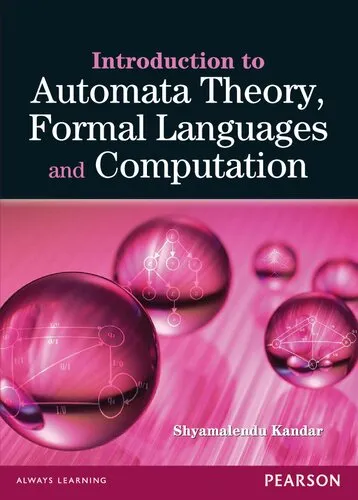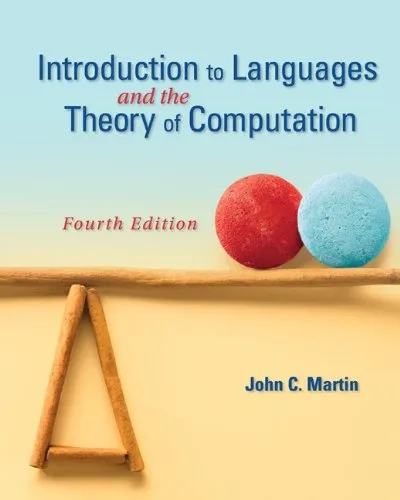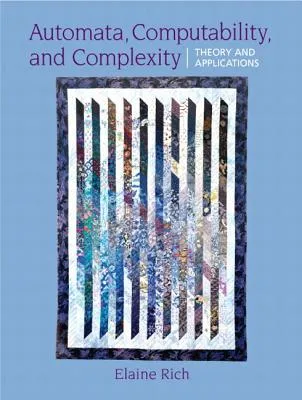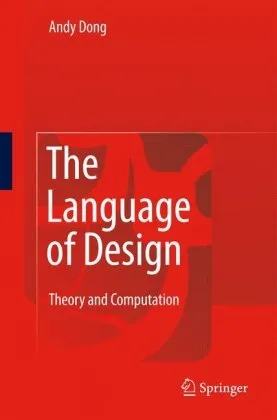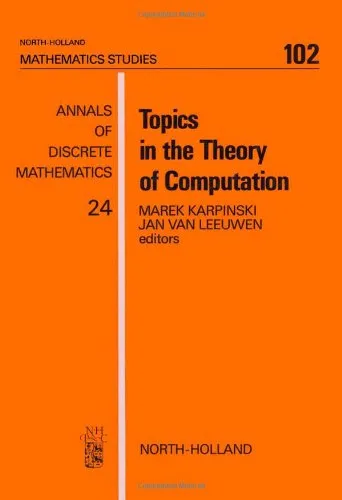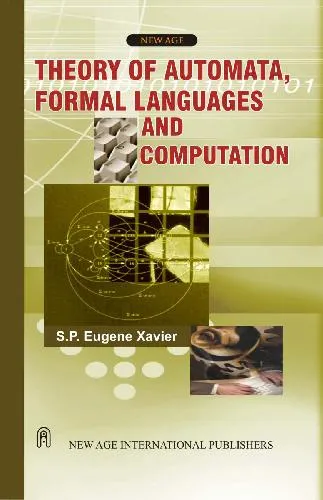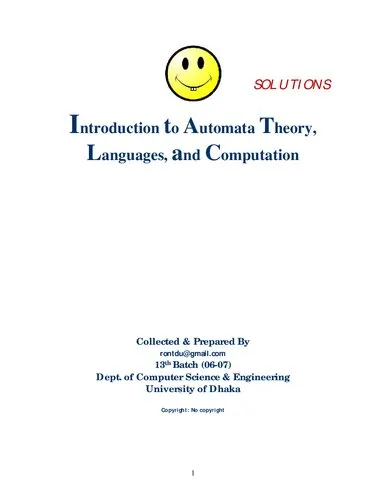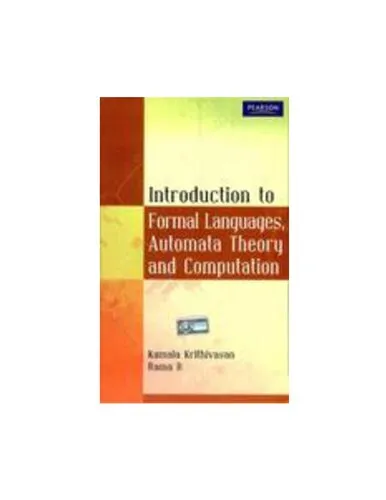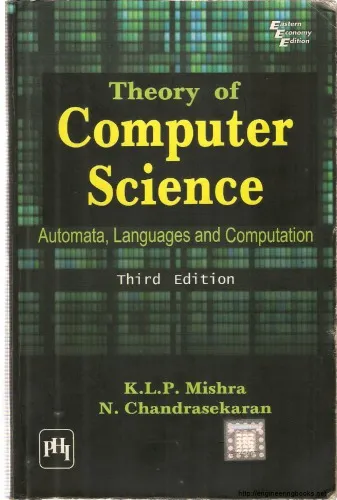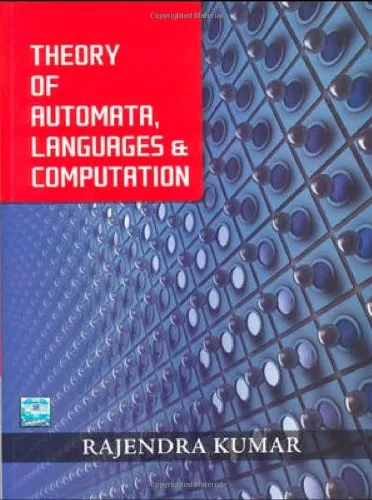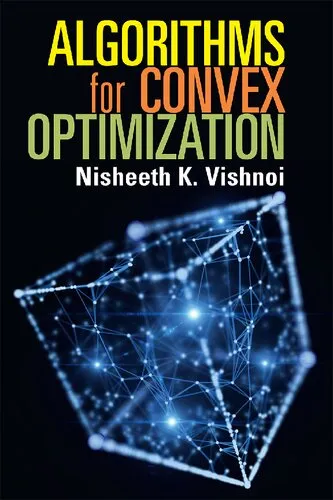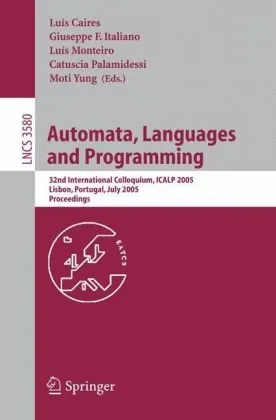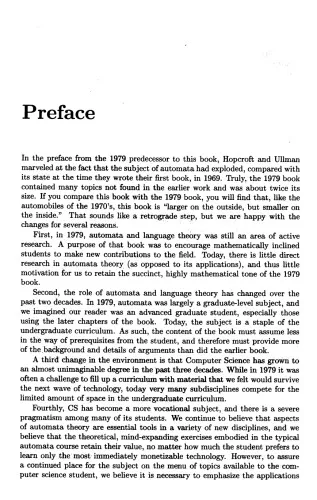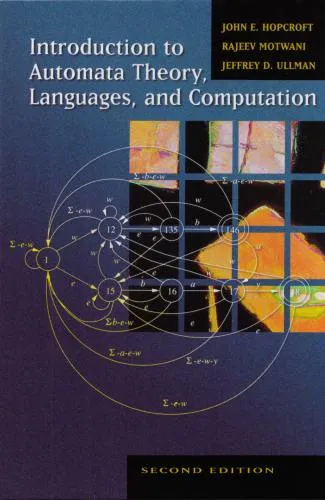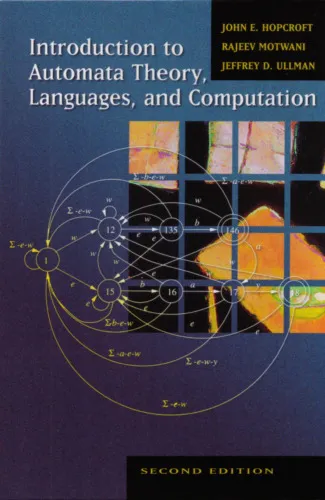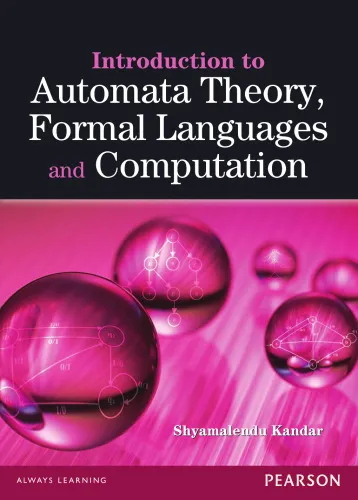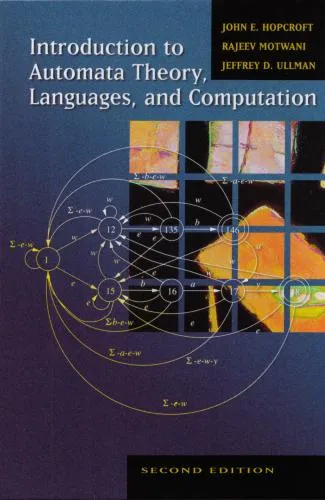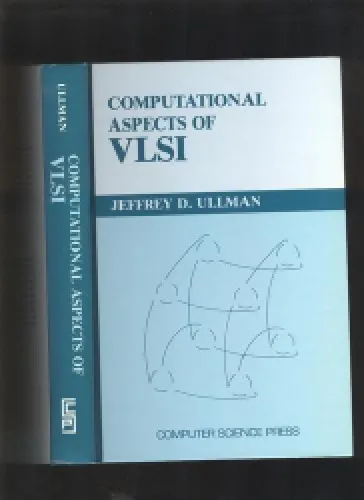Introduction to Automata Theory, Formal Languages and Computation
4.3
بر اساس نظر کاربران

شما میتونید سوالاتتون در باره کتاب رو از هوش مصنوعیش بعد از ورود بپرسید
هر دانلود یا پرسش از هوش مصنوعی 2 امتیاز لازم دارد، برای بدست آوردن امتیاز رایگان، به صفحه ی راهنمای امتیازات سر بزنید و یک سری کار ارزشمند انجام بدینکتاب های مرتبط:
مقدمهای جامع به کتاب 'Introduction to Automata Theory, Formal Languages and Computation'
این کتاب یکی از منابع مهم و اساسی در زمینه نظریه اتوماتا، زبانهای رسمی و محاسبات است. نوشته شده توسط شایمالندو کاندر، این کتاب به دانشجویان و متخصصان کمک میکند تا درک عمیقی از موضوعات پیچیده و اساسی در علوم کامپیوتر کسب کنند.
خلاصهای جامع از کتاب
کتاب 'Introduction to Automata Theory, Formal Languages and Computation' با هدف ارائه یک پایه قوی برای یادگیری و پیشرفت در زمینههای نظریه اتوماتا و زبانهای رسمی نوشته شده است. این کتاب به طور جامع به بررسی مباحث مختلف از جمله deterministic finite automata، nondeterministic finite automata، regular languages، context-free grammars، و pushdown automata میپردازد.
کتاب به گونهای طراحی شده است که برای تمامی سطوح مهارتی قابل دسترسی باشد، از دانشجویانی که تازه وارد این حوزه شدند گرفته تا محققان با تجربه. مثالهای متعدد و توضیحات دقیق، فهم موضوعات پیچیده را سادهتر میکند.
نکات کلیدی
- درک پایهای از اتوماتا و زبانهای رسمی و نقش آنها در توسعه نرمافزار و طراحی سیستمهای پیچیده.
- توضیحات دقیق و مثالهای متعدد برای سهولت یادگیری و کاربرد عملی مفاهیم تئوری.
- سرفصلهای متنوع که شامل deterministic و nondeterministic automata و همچنین regular و context-free languages میشوند.
نقلقولهای معروف از کتاب
“Automata theory provides the foundation for understanding computation and its limits.”
“A deep understanding of formal languages and automata is essential for the development of efficient algorithms and systems.”
چرا این کتاب مهم است؟
کتاب 'Introduction to Automata Theory, Formal Languages and Computation' به دلیل ارائه یک دیدگاه جامع و دقیق از مفاهیم پایهای در علم کامپیوتر اهمیت دارد. این کتاب به دانشجویان کمک میکند تا نه تنها مفاهیم تئوری را درک کنند، بلکه آنها را در کاربردهای واقعی نیز به کار ببرند. توانایی تبدیل الگوریتمهای پیچیده به مدلهای عملی و قابل فهم از دیگر نقاط قوت این کتاب است.
همچنین، این کتاب به عنوان یک منبع معتبر برای تدریس در بسیاری از دانشگاههای جهان استفاده میشود و میتواند به عنوان یک راهنمای مرجع برای برنامهنویسان و محققان حرفهای مفید باشد. اهمیت دیگر این کتاب در تأثیرگذاری آن بر طراحی زبانهای برنامهنویسی و توسعه تکنولوژیهای نوین برای پردازش زبانهاست.
Introduction to the Book
Welcome to the world of theoretical computer science with "Introduction to Automata Theory, Formal Languages and Computation". This book serves as a comprehensive journey through the core concepts of automata, formal languages, and the computational theories that underpin modern computer science. As the cornerstone for understanding the fundamentals of computer science, this book aims to blend classic theoretical principles with contemporary computational strategies, making it a prefect fit for both academia and industry professionals.
Detailed Summary
In this book, readers will embark on a detailed exploration of automata theory, beginning with the fundamental definitions and progressively advancing towards more complex theories and applications. The book covers several key topics, including finite automata, context-free grammars, Turing machines, and the Chomsky hierarchy that classifies formal languages according to their generative complexity. From deterministic and non-deterministic models to regular expressions and beyond, the comprehensive coverage in each chapter builds a foundation that equips readers with the ability to navigate and utilize complex computational structures and languages.
Each chapter begins with intuitive introductions of concepts, followed by rigorous mathematical formulations, theorems, and practical problem-solving strategies. The inclusion of exercises with detailed solutions promotes a hands-on approach to learning, encouraging curiosity and deeper understanding. This structure ensures that students not only observe how formal languages and automata operate but also manipulate these systems in practical scenarios.
Key Takeaways
- Understanding of various machine models including finite automata, pushdown automata, and Turing machines.
- In-depth study of language classes: regular languages, context-free languages, recursive, and recursively enumerable languages.
- Proficiency in designing computational algorithms and analyzing computational problems for solvability and complexity.
- An appreciation of the significance of the theoretical foundation in practical computing and software development.
Famous Quotes from the Book
"The journey into the depths of computation begins with understanding the limits and capabilities of the simplest of machines."
"Recognizing patterns within languages grants us the power to encode complex ideas in the simplest form."
Why This Book Matters
In the rapidly evolving domain of computer science, understanding the theoretical bedrock is more crucial than ever. "Introduction to Automata Theory, Formal Languages and Computation" imparts vital knowledge and skills that are essential for both theoretical research and practical application development. By navigating students and professionals through the intricate tapestry of automata and formal languages, this book fosters a foundational awareness that is applicable in real-world problem-solving, software design, and innovation in computing.
As computers become more sophisticated, the principles laid out in this book continue to grow in relevance, ensuring that readers are well-prepared to tackle emerging challenges in computational theory and application. Therefore, whether you are a student striving for academic excellence or a professional aiming to sharpen your skills, this book stands as an invaluable resource in your educational and professional journey.
دانلود رایگان مستقیم
شما میتونید سوالاتتون در باره کتاب رو از هوش مصنوعیش بعد از ورود بپرسید
دسترسی به کتابها از طریق پلتفرمهای قانونی و کتابخانههای عمومی نه تنها از حقوق نویسندگان و ناشران حمایت میکند، بلکه به پایداری فرهنگ کتابخوانی نیز کمک میرساند. پیش از دانلود، لحظهای به بررسی این گزینهها فکر کنید.
این کتاب رو در پلتفرم های دیگه ببینید
WorldCat به شما کمک میکنه تا کتاب ها رو در کتابخانه های سراسر دنیا پیدا کنید
امتیازها، نظرات تخصصی و صحبت ها درباره کتاب را در Goodreads ببینید
کتابهای کمیاب یا دست دوم را در AbeBooks پیدا کنید و بخرید
1807
بازدید4.3
امتیاز0
نظر98%
رضایتنظرات:
4.3
بر اساس 0 نظر کاربران
Questions & Answers
Ask questions about this book or help others by answering
No questions yet. Be the first to ask!
